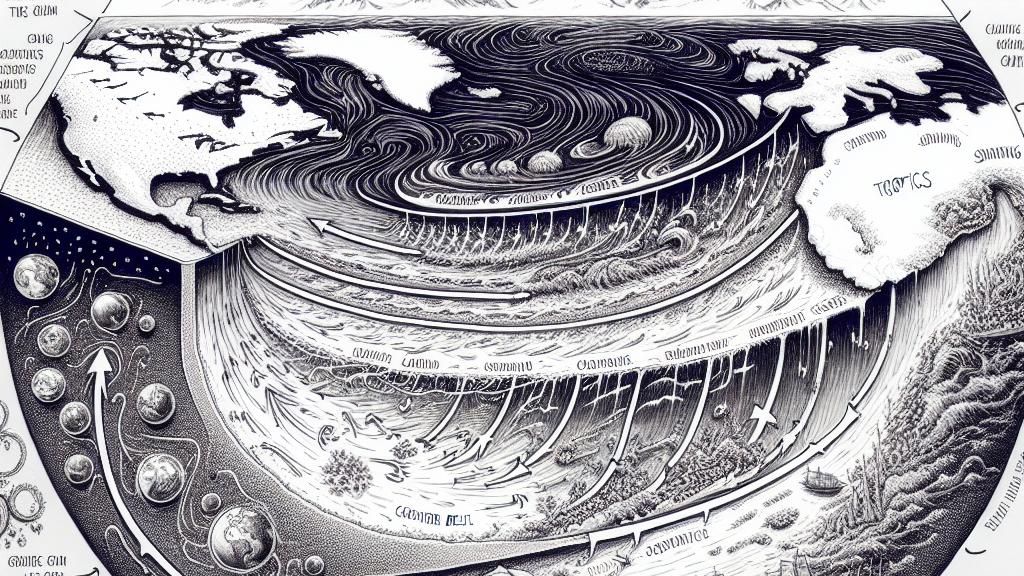Atlantic Ocean Currents: A Ticking Time Bomb Set to Stop by the 2030s!
Overview
- The Atlantic Meridional Overturning Circulation (AMOC) could cease functioning by the late 2030s, causing major climate disruptions.
- Such a halt may lead to extreme weather conditions, including colder winters in Europe and significant changes in the Amazon's rainfall patterns.
- Immediate, collective actions are crucial to mitigate human impacts on climate and prevent irreversible environmental consequences.

Understanding AMOC's Critical Function
The Atlantic Meridional Overturning Circulation (AMOC) is a powerful oceanic system that plays a vital role in regulating Earth's climate. This extensive current functions like a massive conveyor belt, moving warm, salty water from the tropics to the North Atlantic, where it cools and sinks before gradually returning south. This process helps maintain temperate climates in Europe and distributes nutrients across marine ecosystems. Recent studies indicate that the AMOC is showing signs of weakening, largely due to sea temperature rises and alterations in salinity caused by melting glaciers and ice sheets. According to research, if these trends continue, the AMOC could face a critical failure by the late 2030s.
Consequences of AMOC Disruption on Global Climate
The implications of an AMOC collapse are alarming and multifaceted. Europe could endure significant climate disturbances, experiencing colder winters, while regions in Africa and South America might suffer from severe droughts and altered rainfall patterns. The Amazon rainforest, for instance, risks shifting to a drier climate, disrupting its rich biodiversity. Furthermore, this alteration could trigger a domino effect, resulting in heightened hurricane activity and more erratic weather globally. Scientists refer to this scenario as a climate tipping point, where small changes can lead to larger, potentially irreversible effects on various interconnected systems. Protective measures for ecosystems and adaptation strategies must be prioritized, as these changes threaten food security, water supplies, and overall ecological health.
Call to Action: A Unified Approach to Combat Climate Change
The urgency for action to prevent the potential collapse of the AMOC cannot be overstated. It requires a global response involving individuals, governments, and organizations working together to address and mitigate climate change. Strategies should include drastically reducing greenhouse gas emissions through renewable energy sources, promoting energy efficiency, and improving waste management practices. Public education campaigns focused on climate literacy can empower communities to participate in sustainable practices. Additionally, international cooperation, as seen in agreements like the Paris Agreement, is essential to create binding commitments aimed at climate resilience and adaptation. By taking decisive action now, we can work toward safeguarding our planet and ensuring a stable climate for future generations.

Loading...